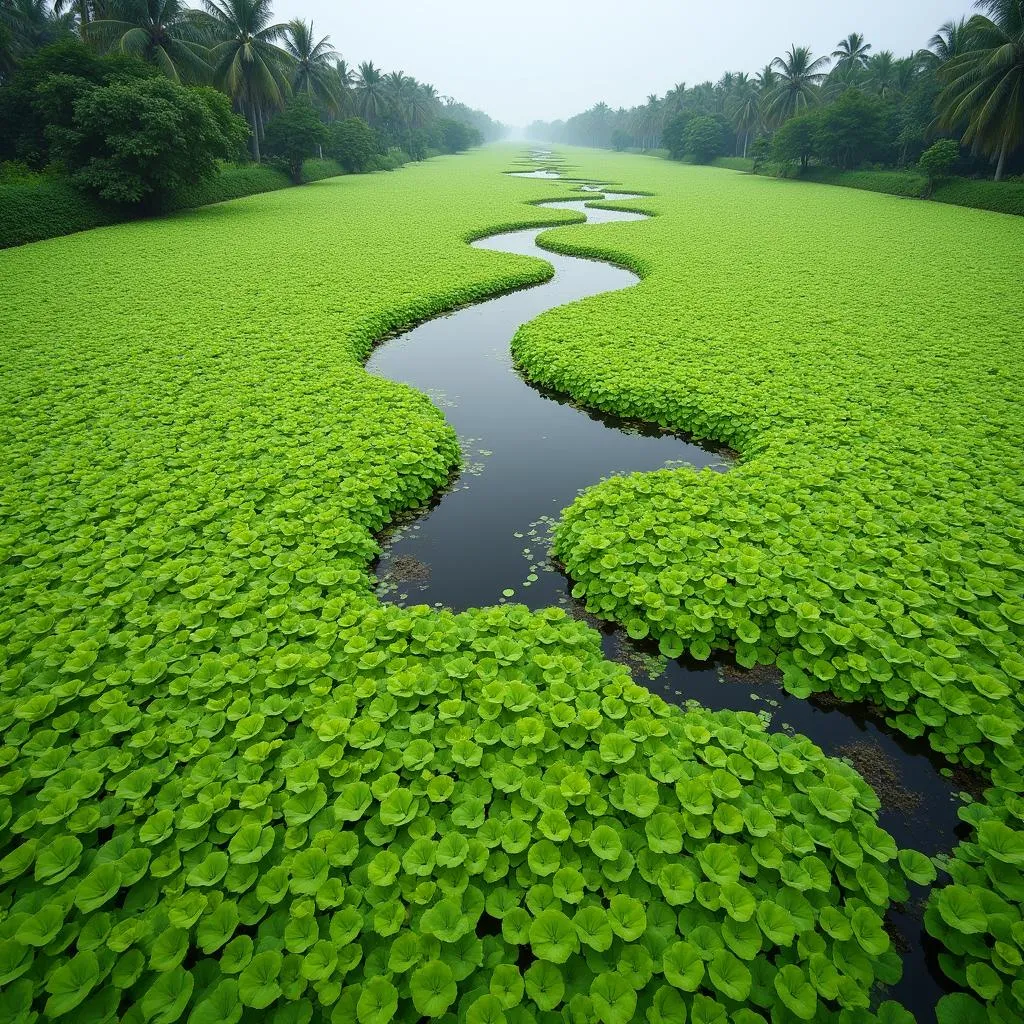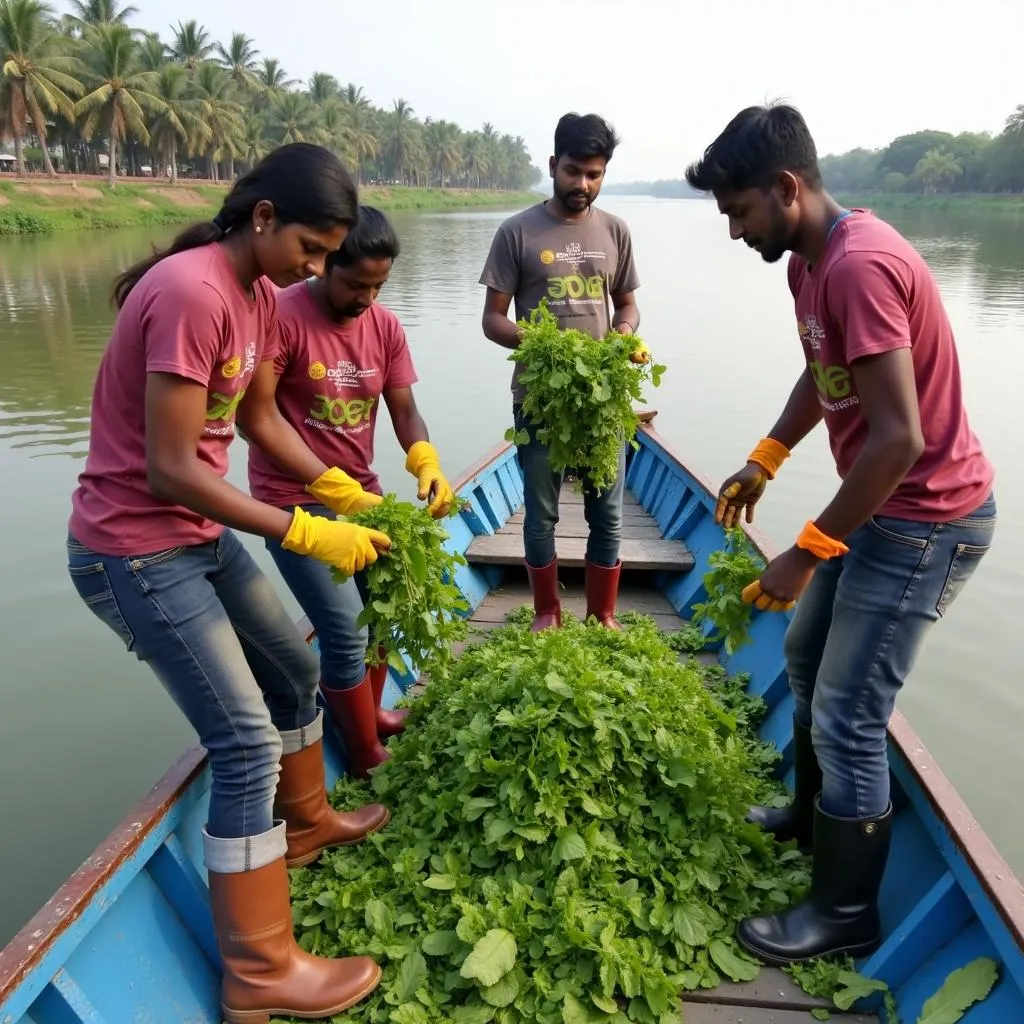The African Algae Ernakulam Issue: Understanding the Situation
The term “African Algae Ernakulam Issue” refers to the growing concern over the rapid spread of a particular type of invasive algae in the Ernakulam district of Kerala, India. This algae, often mistakenly referred to as “African algae,” is actually a species native to South America known as Pistia stratiotes, or water lettuce. Its aggressive growth is causing significant problems for the local ecosystem and impacting livelihoods in the region.
Understanding the Invasive Water Lettuce Problem
While Pistia stratiotes is found in various parts of the world, its rapid proliferation in the waterways of Ernakulam is causing alarm. The plant forms dense mats on the water’s surface, leading to several issues:
- Blocked Waterways: The dense mats of water lettuce impede boat traffic, impacting fishing and transportation.
- Oxygen Depletion: The algae consume large amounts of oxygen, depleting the water of this essential element and threatening fish and other aquatic life.
- Light Blockage: The thick layers of Pistia stratiotes prevent sunlight from reaching submerged plants, disrupting the aquatic food web.
- Increased Water Loss: The algae significantly increase the rate of water evaporation, a concern in a region already facing water scarcity issues.
 Kerala waterways choked with water lettuce
Kerala waterways choked with water lettuce
Factors Contributing to the Spread
Several factors contribute to the rapid growth of water lettuce in Ernakulam:
- Nutrient Pollution: Runoff from agricultural fields and urban areas carries excess nutrients into the water, fueling the algae growth.
- Climate Change: Warmer temperatures and changes in rainfall patterns create favorable conditions for Pistia stratiotes to thrive.
- Lack of Natural Predators: In its introduced range, water lettuce lacks natural predators that would normally keep its population in check.
 Scientist analyzes water lettuce in laboratory
Scientist analyzes water lettuce in laboratory
Addressing the Ernakulam Algae Issue
Managing the spread of Pistia stratiotes requires a multi-pronged approach:
- Physical Removal: Manual and mechanical removal of the plant helps to reduce its immediate impact, but it is a labor-intensive and ongoing effort.
- Biological Control: Introducing natural predators of the water lettuce, such as certain types of weevils, can help to control its population in the long term.
- Wastewater Treatment: Improving wastewater treatment facilities can reduce the flow of excess nutrients into the waterways.
- Community Awareness: Educating the public about the issue, its causes, and potential solutions is crucial for effective management.
“Combating invasive species like Pistia stratiotes requires a sustained and collaborative effort,” says Dr. Maya Kumar, a leading researcher studying the Ernakulam algae issue. “By combining scientific knowledge with community action, we can restore balance to the affected ecosystems.”
The Importance of Accurate Information
It’s essential to clarify that referring to the invasive species as “African algae” is misleading. The term can perpetuate misconceptions and hinder efforts to implement appropriate management strategies.
 Volunteers work to remove water lettuce
Volunteers work to remove water lettuce
Moving Forward
The “African algae” Ernakulam issue highlights the complex challenges posed by invasive species. By understanding the factors contributing to the problem and implementing effective management strategies, there is hope for restoring balance to the affected ecosystems and protecting the livelihoods of the people who depend on them.
